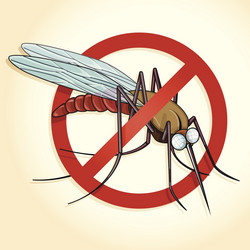Europe combats mosquito borne diseases
West Nile virus (WNV) and Chikungunya virus (CHIKV) are viral diseases spread by mosquitoes (vectors). The aim of the VECTORIE(opens in new window) (Vector-borne risks for Europe: risk assessment and control of West Nile and Chikungunya virus) project was to investigate the spread of WNV and CHIKV. The initiative combined expertise from the fields of virology, entomology and advanced vaccinology to monitor disease spread and diagnose, prevent and treat WNV and CHIKV infections. CHIKV is transmitted to humans by the bite of infected mosquitoes and humans are the only known hosts for the virus. For WNV, humans and birds are both hosts, but this virus can only produce sufficient viral levels in birds for transmission to other mosquitoes. These then infect other birds, humans and horses. VECTORIE was divided into three main parts: vector biology, virulence and pathogenesis as well as vaccines. Vector biology involved the susceptibility of birds and mammals to the diseases and the effectiveness of mosquitoes in transmitting them. This will therefore provide vital information that will determine the type of surveillance system used in European countries to detect and predict emerging WNV and/or CHIKV outbreaks. The project addressed the need for understanding how the different WNV strains that circulate in Europe differ in their capacity to cause neuroinvasive disease. These investigations will improve Europe’s ability to monitor the spread of these infections, leading to diagnostic and prognostic tools as well as new intervention strategies. Vaccines, the third aspect of the project, addressed Europe's need to develop novel vaccination strategies for at-risk populations. Researchers developed novel monovalent vaccine candidates to protect against either WNV or CHIKV and bivalent vaccine candidates to protect against both WNV and CHIKV. The consortium improved these vaccine candidates to develop safer and more efficient vaccine combinations, tailored specifically to European conditions. VECTORIE made a major contribution to the creation of an integrated research capacity on vector-borne emerging diseases in Europe and brought together experts from different fields. The project also organised training courses for young scientists on emerging vector borne diseases to work on safeguarding Europe’s health in the future.







